All Stories
-
 Neuroscience
NeuroscienceBrain’s protective barrier gets leakier with age
Aging influences the breakdown of the blood-brain barrier, which may contribute to learning and memory problems later in life.
-
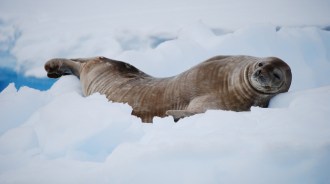 Animals
AnimalsDiving marine mammals take deep prey plunges to heart
In spite of their diving prowess, Weddell seals and bottlenosed dolphins experience irregular heart rates when they venture beyond 200 meters under the sea.
-
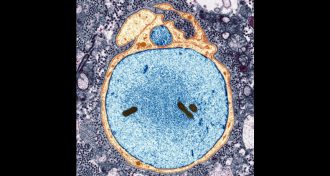 Health & Medicine
Health & MedicineImmune system ‘reset’ may give MS patients a new lease on life
With the help of their own stem cells, MS patients can stop the disease in its tracks in many cases.
By Nathan Seppa -
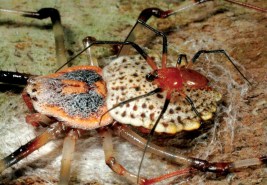 Animals
AnimalsCringe away, guys — this spider bites off his own genitals
After sex, a male coin spider will chew off his own genitals, an act that might help secure his paternity.
-
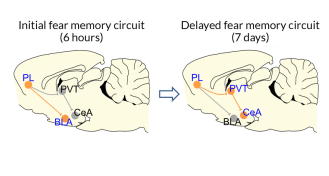 Neuroscience
NeuroscienceNewly identified brain circuit hints at how fear memories are made
A newfound set of brain connections appears to control fear memories, a finding that may lead to a better understanding of PTSD and other anxiety disorders.
-
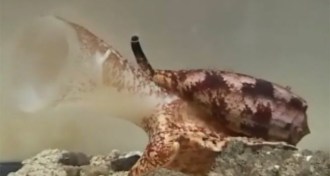 Animals
AnimalsCone snail deploys insulin to slow speedy prey
Fish-hunting cone snails turns insulin into a weapon that drops their prey’s blood sugar and eases capture.
By Susan Milius -
 Life
LifeHuman evolution tied to a small fraction of the genome
Natural selection has concentrated on a small portion of the human genome, and mostly not on genes themselves.
-
 Physics
PhysicsSpeed of light not so constant after all
Even in vacuum conditions, light can move slower than its maximum speed depending on the structure of its pulses.
By Andrew Grant -
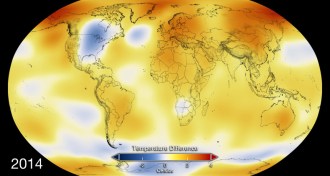 Climate
Climate2014 was Earth’s warmest year on record
Record-hot 2014 marks the 38th consecutive year of temperatures above the 20th century’s average.
By Beth Mole -
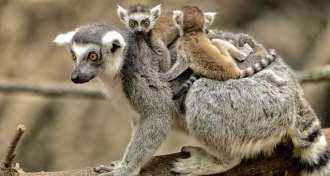 Animals
AnimalsLemurs aren’t pets
The first survey of lemur ownership in Madagascar finds that thousands of the rare primates are held in households.
-
 Planetary Science
Planetary ScienceMars orbiter locates lost Beagle 2 lander
The Beagle 2 lander, missing since 2003, has been found on the surface of the Red Planet in images from the Mars Reconnaissance Orbiter.
-
 Tech
TechUsing Facebook ‘likes,’ computer pegs people’s personalities
Using limited data from Facebook, computers can outdo humans in assessing a user’s openness, neuroticism and other personality traits.